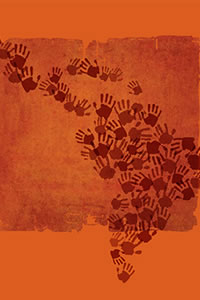«Back

|
 |
SOCIAL PROTECTION SYSTEMS
Social protection has emerged in recent years as a key concept which seeks to integrate a variety of actions aimed at building fairer and more inclusive societies, and guaranteeing a minimum standard of living for all. In particular, social protection is seen a fundamental mechanism to contribute to the full realization of the economic and social rights of the population –to social security, labour, protection of adequate standards of living for individuals and families, as well as to the highest level of physical and mental health and to education–.
The responsibility of guaranteeing such rights lies primarily with the State, which has to play a leading role in social protection —for it to be seen as a right and not a privilege—, in collaboration with three other major stakeholders: families, the market and social and community organizations. Albeit with some differences due to their history and degree of economic development, many Latin American and Caribbean countries are at now the forefront of developing countries’ efforts to establish these guarantees, by implementing various types of transfers, including conditional cash transfer programmes and social pensions, and expanding health protection. One of the key challenges that the countries of the region face, however, is integrating the various initiatives within social protection systems capable of coordinating the different programmes and State institutions responsible for designing, financing, implementing, regulating, monitoring and evaluating programmes, with a view to achieving positive impacts on living conditions.
This website presents a series of national case studies which characterize two major components of social protection systems —non-contributory (traditionally known as “social assistance”, which can include both universal and targeted measures) and contributory social protection (or “social security”). The case studies also discuss employment policies as well as social sectors such as education, health and housing, as their comprehension is needed to understand the challenges for people’s access to those sectors in each country.
The documents presented here have been prepared in the framework of the activities of the following projects: “Strengthening social protection” (ROA/149-7), “Strengthening regional knowledge networks to promote the effective implementation of the United Nations development agenda and to assess progress” (ROA 161-7) and "Time for equality: Strengthening the Institutional Framework of Social Policies" (ROA 235-8) financed by the United Nations Development Account and coordinated by the Social Development Division of the Economic Commission for Latin America and the Caribbean (ECLAC).
|
|
|
